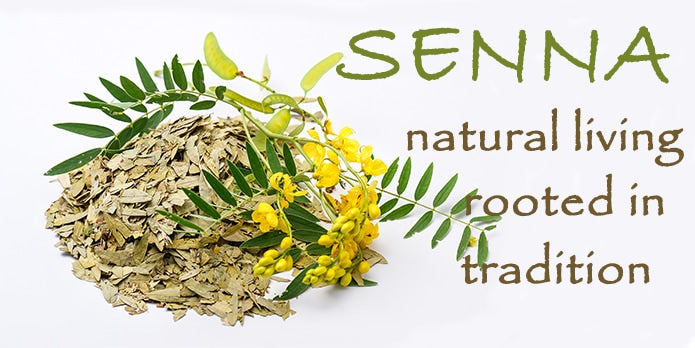
For centuries, ancient cultures around the world have been using plants to aid and support dietary needs. Fast-forward to modern times, people still seek and utilize plants by incorporating them into foods, drinks, and supplements to achieve optimum health.
Over the next six weeks, let’s take a deeper look at commonly used herbs that help support natural living.
Used for centuries in folk medicine, Senna (from Arabic sanā), is an herb approved by the US Food and Drug Administration for over-the-counter use as a laxative. The flowering plant is found native throughout the world, mainly in subtropical and tropical regions. It favors red loam and clay-rich fields, though the plant is tolerant of other conditions. There is about 50 different species of Senna, however, Alexandrian is most commonly used for laxatives.

PARTS USED: Leaf or pods
The active components in Senna extract are glucosides referred to as sennosides.
HOW IT WORKS:
Sennosides create an irritating effect on the lining of the lower gastrointestinal tract. As a result, contractions (known as peristalsis) push material out of the lower intestines producing a bowel movement.
During the process, intestinal fluid increases the moisture content of the stool by inhibiting electrolytes and water re-absorption from the colon making stool softer and smoother.
RECOMMENDATION & REGULATION:
- Senna is recommended for short-term use only.
- Always consult your doctor prior to starting any supplement regimen.

FUN FACTS:
- Used in traditional herbal medicine such as Chinese, Indian Ayurvedic, and Unani
SOURCES:
https://livertox.nih.gov/Senna.htm
http://www.chinese-herbs.org/senna-leaves/
http://www.webmd.com/vitamins-supplements/ingredientmono-652-senna.aspx?activeingredientid=652&

